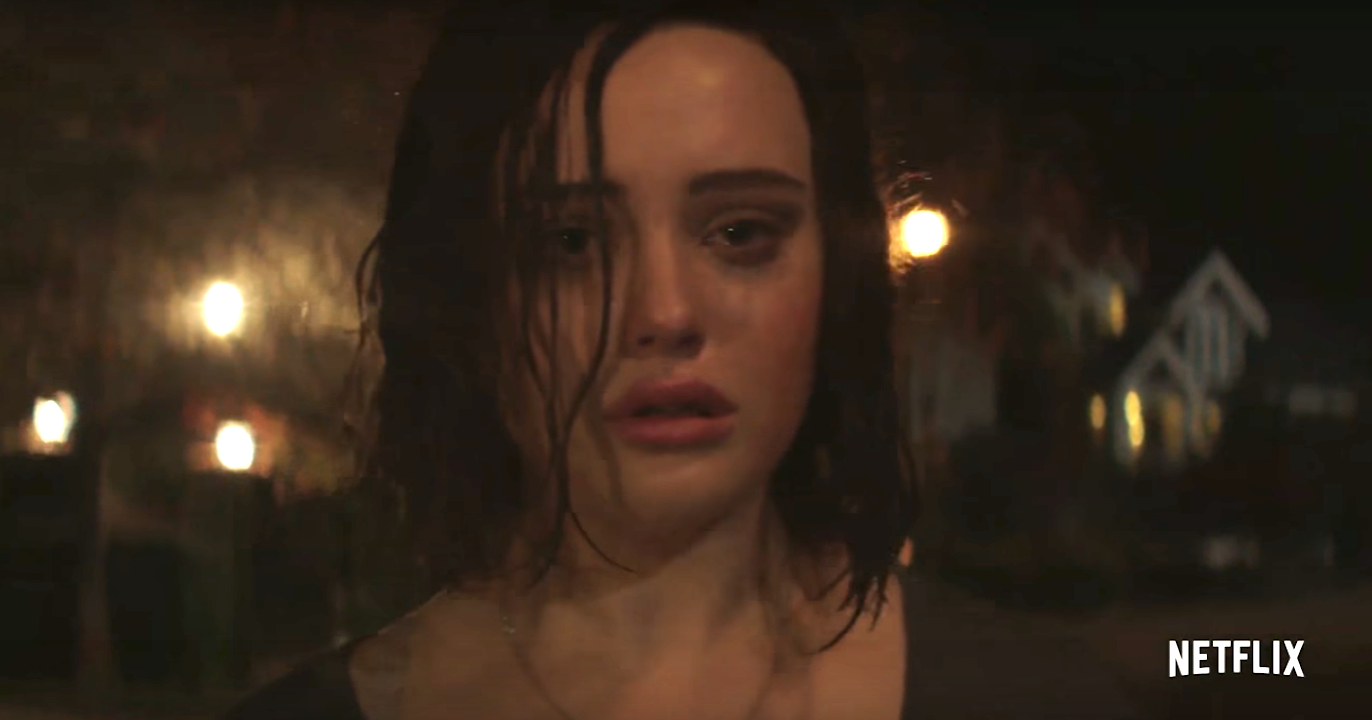
Whoa.
I found myself mumbling this word to myself at least 100 times while watching the Netflix series 13 Reasons Why.
So, how is it?” my friends asked, wondering if they should add it to their queue of ways to postpone productivity.
All I could do was nod my head furiously and say, you guessed it, “whoa.”
Now that I’ve had some time to metabolize the buffet of modern teenage horrors that this show so perfectly portrays, I can finally articulate that yes, I highly recommend watching it.
But the whoa remains, and it is full of cautions and concerns, particularly for anyone that is in charge of a teen.
1. What you need to know about the show
If you haven’t yet heard the buzz about13 Reasons Why, here’s a short description without divulging any spoilers:
The show revolves around a 17-year-old named Hannah who has recently completed suicide. Hannah records 13 cassette tapes that chronicle the reasons why she decided to end her life.
For entertainment purposes, Rotten Tomatoes highly recommends the show and so do I. I’ve willingly sacrificed numerous would-be-productive hours (…okay, days!) to watch it.
As a parent, only you can decide if this show is appropriate for your child to watch, but here are some things that might help you determine that:
>> The show depicts sex, sexuality, and drug and alcohol abuse. There are extremely graphic scenes depicting various acts of violence, including rape and suicide. I am an avid horror movie fan and some of the scenes from this show were the most graphic I have ever seen. The directors deliberately depict violent acts in the most realistic way possible. They did not seek to pull any punches in this series (they note this in their commentary in Beyond 13 Reasons). If you’re concerned about language—and this is likely the least of your worries here—suffice it to say that if four-letter words were a spice, this series is spicy AF.
>> Though not the writers’ intention, the series can easily be misinterpreted as glorifying suicide. In fact, the series exemplifies a common fantasy that teens can have about suicide. By way of cassette tapes delivered posthumously, Hannah, who has completed suicide, commands the undivided attention of everyone who has wronged her. While the viewer likely knows that one cannot experience redemption after death, it can still feel like this is exactly what is happening. It can feel like Hannah is successful in having the last word.
>> There are many complex and nuanced issues to unpack in each episode. This is not something that our children should have to do alone. I am a professional social worker in my late 30s and as I write this, I am desperately trying to start a discussion group among my colleagues because even I don’t want to unpack this alone.
>> Of everything I’ve just described, one of the most disturbing things depicted in this series is how easily even the most well-meaning educators, parents, and counselors can get it wrong and how even the most functional, loving families with nearly every imaginable privilege are not immune to all of the potential horrors a teen can be subjected to.
Bottom Line: Don’t make children watch this alone.
#2 What you need to know, regardless of whether you watch the show or not
I’m not going to throw statistics at you. The bottom line is that these issues—rape, bullying, depression, drug abuse, suicide—are common. It’s always someone else’s child or someone else’s family that’s affected, until it shows up at your doorstep forcing its way in. And, by then, it is often too late.
The show can serve as a great segue to talk to your children about a variety of difficult, pertinent issues and even if you deem the show inappropriate, these are important discussions to have anyway.
The best prevention is intervention, as early as possible, and that begins with knowing what’s up with your son or daughter. The most reliable source of this intel? Your child. The best way to get it? Talk to him or her.
Bottom Line: Communicate with your children about their mental health—early and often.
#3 How to communicate with your children about their mental health
Let me briefly tell you who I am. I am a licensed clinical social worker who has worked with children and teens suffering from various emotional, mental, and behavioral issues. As a child and teen, I also suffered from “various emotional, mental, and behavioral issues.”
My adolescent resume read something like this:
Bullied; became a bully; truant for entire ninth grade year; truant for most of tenth grade year; expelled for truancy and fighting; suffered from untreated and mistreated anxiety and depression; could often be found on the D train writing (cringeworthy) poems about jumping in front of it; highly adept at cutting off her nose to spite her mother.
My life eventually got a lot better.
I found an effective treatment for anxiety and depression. I graduated high school (two years later than my class and from an “alternative” high school for “troubled” teens). I went to college, and then grad school. I currently live a happy and healthy life.
There are two reasons I made it through my teens while many others do not—luck and tenacity (which is actually also a kind of luck, by way of good DNA). So really it’s just one reason—I got lucky.
Over the years I have been asked (and have often wondered myself) what adults could have done differently. What could they or should they have done to help? What magic words could they have said? To be sure, they said a lot of things. Some of it even turned out to be accurate. But there was nothing an adult could have told me that would’ve made any difference. There were, however, a lot of things they could have and should have asked me.
If they knew what to ask and how to listen—how to actively, effectively listen—it could’ve helped a great deal.
One of the great things about teenagers is that they pride themselves on being independent thinkers. So while many of them may not readily accept your point of view, they may accept help figuring out their own point of view. A great way to do this is by using open-ended questions.
Here are some examples—if you choose to utilize the show as a segue:
>> Who do you most identify with in this episode and why?
>> What issues reflected in this episode are familiar to you?
>> What issues are confusing?
>> How would you have handled the issues depicted in the show?
>> In the show, the teens often choose not to tell their parents about the problems they are having. Why do you think that is? What can parents do to encourage their children to confide in them?
If you choose not to watch the show:
>> In your opinion, what subjects are usually easy to discuss with parents? What subjects are difficult to discuss?
>> What, in your opinion, can parents do to make children more likely to confide in them?
>> What does the term “bullying” mean to you? What would you do if you experienced this?
>> Tell me about a time you felt angry, depressed, disappointed, or confused. How did you deal with it? If you wanted to express each of those feelings, how would you do it?
>> What would you do if you didn’t know what you were feeling but knew you just felt “bad?” Who would you tell and how would you tell them?
Bottom Line: Ask more than you answer. Listen more than you talk.
Finally, some recommended “Do’s and Don’ts”
Do
Validate feelings, regardless of whether or not you agree. Actions are up for discussion and you have the last word. But feelings are never up for negotiation.
Don’t
Tell your children that their feelings aren’t real. They are, in fact, more intense than the average adults’. Teens typically lack the ability to see that their problems are temporary, so everything feels like it’s going to last forever. You can tell them that this is not the case until you’re blue in the face—they won’t get it. Often, their brains aren’t wired to understand this yet.
Don’t
Assume they aren’t communicating if they’re not communicating with words. There are lots of ways that people communicate without words—through art, dance, music. People can also communicate with their behavior.
Do
Help them to effectively use whatever communication tools they are comfortable with
Don’t
Assume they know everything that they say they know. My mother once asked me at 15 if I knew about sex. I (vehemently) answered yes. If she had asked me to describe it, she would’ve learned that I was very misinformed. So try to stay away from yes or no questions.
Do
Ask them to explain things to you. For example, what does bullying mean to you? What does consensual sex look like? What does nonconsensual sex look like? Describe a situation where it might be hard to determine whether sex is consensual or not.
Don’t
Assume this show will resonate with every teen. The show centers around a white, cisgendered female and white cisgendered male in an affluent community. That may not click with your child.
Do
Discuss the similarities and differences between your child’s experience and the experiences depicted in the show.
Do
Speak with your child’s school about these issues. What policies are in place to prevent them? What policies are in place to respond to these issues when they occur? Ask about the policy regarding what school counselors can and cannot divulge to parents. Ask exactly what your school counselor would do if Hannah confided in them. Ask what they can and cannot do when they suspect a child is suffering from depression—you might be surprised.
Finally, do please talk often and openly about these issues. Talk with your children, your peers, your school, and your community.
One of the best things we can do is start and sustain a conversation about these uncomfortable, but gravely important and pertinent issues.
Please feel free to comment on this article with your opinion and experience. We can all learn from one another, and none of us should have to unpack these issues alone.
~
~
~
Author: Jenny Spitzer
Image: Netflix
Editor: Leah Sugerman
 Share on bsky
Share on bsky





Read 15 comments and reply